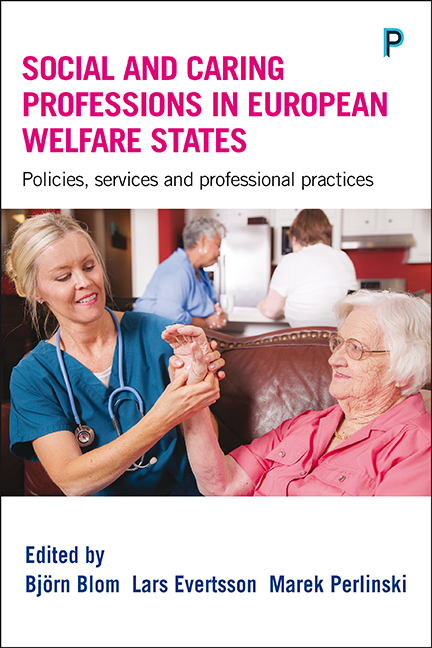 Social and Caring Professions in European Welfare States
Social and Caring Professions in European Welfare States Book contents
- Frontmatter
- Contents
- List of tables and figures
- Notes on contributors
- Preface
- one European social and caring professions in transition
- Part 1 Knowledge, reflection and identity in the social and caring welfare professions
- Part 2 Control, regulation and management
- Part 3 Collaboration, conflict and competition
- Part 4 Assessment, negotiation and decision making
- Index
six - Auditing and accountability
Published online by Cambridge University Press: 05 April 2022
- Frontmatter
- Contents
- List of tables and figures
- Notes on contributors
- Preface
- one European social and caring professions in transition
- Part 1 Knowledge, reflection and identity in the social and caring welfare professions
- Part 2 Control, regulation and management
- Part 3 Collaboration, conflict and competition
- Part 4 Assessment, negotiation and decision making
- Index
Summary
This chapter consists of two parts. First, two accountability dilemmas are identified, key concepts are defined, and a framework for exploring the interplay among democratic governance, audit systems and accountability is presented. Second, two different but dominant audit systems used in Swedish eldercare are described and analysed in light of this framework, and consequences of auditing and accountability for key actors involved are discussed, as well as possible ways of resolving the two accountability dilemmas. In relation to the volume, this chapter explores conditions, trends and challenges in today's audit society and their implications for welfare professions and other key actors. Swedish eldercare is an illustrative case of a phenomenon occurring in most policy sectors.
Introduction
According to the political theorist John Keane (2008), there has been a fundamental shift in representative democracy since the Second World War towards a form of ‘monitory democracy’ defined by the multiplication and dispersal of multiple power-monitoring and power-contesting mechanisms, within both the domestic and cross-border fields of government and civil society. Various forms of audit exemplify such mechanisms. Audit as an organisational and democratic control function was first confined to the financial examination of accounts. However, an audit explosion in recent decades has extended the concept and the ways governments and organisations undertake various kinds of audits, such as supervision, financial and performance audits (Power, 1997; Dahler-Larsen, 2012).
The 1990s saw growing demands for governments to achieve better results in public policies, agencies and services, and performance assessment is now an indispensable component of various New Public Management (NPM) regimes (Radin, 2006; Van Dooren et al, 2010). NPM needs recurrent performance information about the quality of actions and about what these actions have achieved in order to fine tune and control implementation, monitor and assess the achievement of objectives, hold lower levels to account, and create a sense of control (Behn, 2001). To meet these needs, numerous new audit systems have been established and prevailing ones have received new attention in many sectors of the welfare state worldwide, not least in human services organisations (Munro, 2004; Clarkson and Challis, 2006; Johansson et al, 2015).
- Type
- Chapter
- Information
- Social and Caring Professions in European Welfare StatesPolicies, Services and Professional Practices, pp. 83 - 98Publisher: Bristol University PressPrint publication year: 2017


